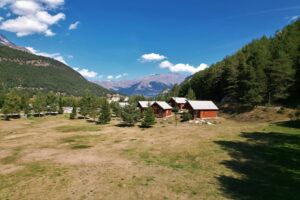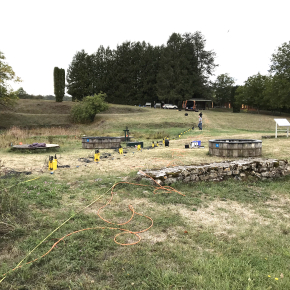Séminaire
Challenges and opportunities in building a global model of plant hydraulics
Manon Sabot (Max Planck Institute for Biogeochemistry)
Séminaire du département de Géosciences de l’ENS-PSL.
Description
Observations of drought-driven damage to vegetation are widespread but, until recently, the sensitivities of different plants to drought were overlooked by the large-scale terrestrial models which we use to study interactions between the climate and the vegetation. This is changing with a new generation of models that consider plant hydraulics. Plant hydraulics link plant water status to pedoclimatic conditions.
As such, explicit consideration of plant hydraulics should make models more mechanistic and predictive, especially because virtually all plant hydraulic implementations converge on a common set of measurable traits or parameters. Regrettably, we do not know how to obtain regional- or global-scale hydraulic parameters from local-scale measurements, nor how to connect them to other plant traits.
Therefore, large-scale applications of hydraulic models are still in their infancy. In this talk, I lay out a roadmap to advance regional and global plant hydraulic modelling. First, I propose strategies to leverage cross-species hydraulic diversity when scaling traits from the species level into model parameters. Second, I discuss the translation of hydraulic status into larger-scale vegetation demography and dynamics.
Efforts to address the suggested roadmap will contribute to ready terrestrial models for simulations that capture the resilience of vegetation communities worldwide.
Informations supplémentaires
Lieu
École normale supérieure – PSL
24 rue Lhomond – aile Erasme
Salle Claude Froidevaux – E314






